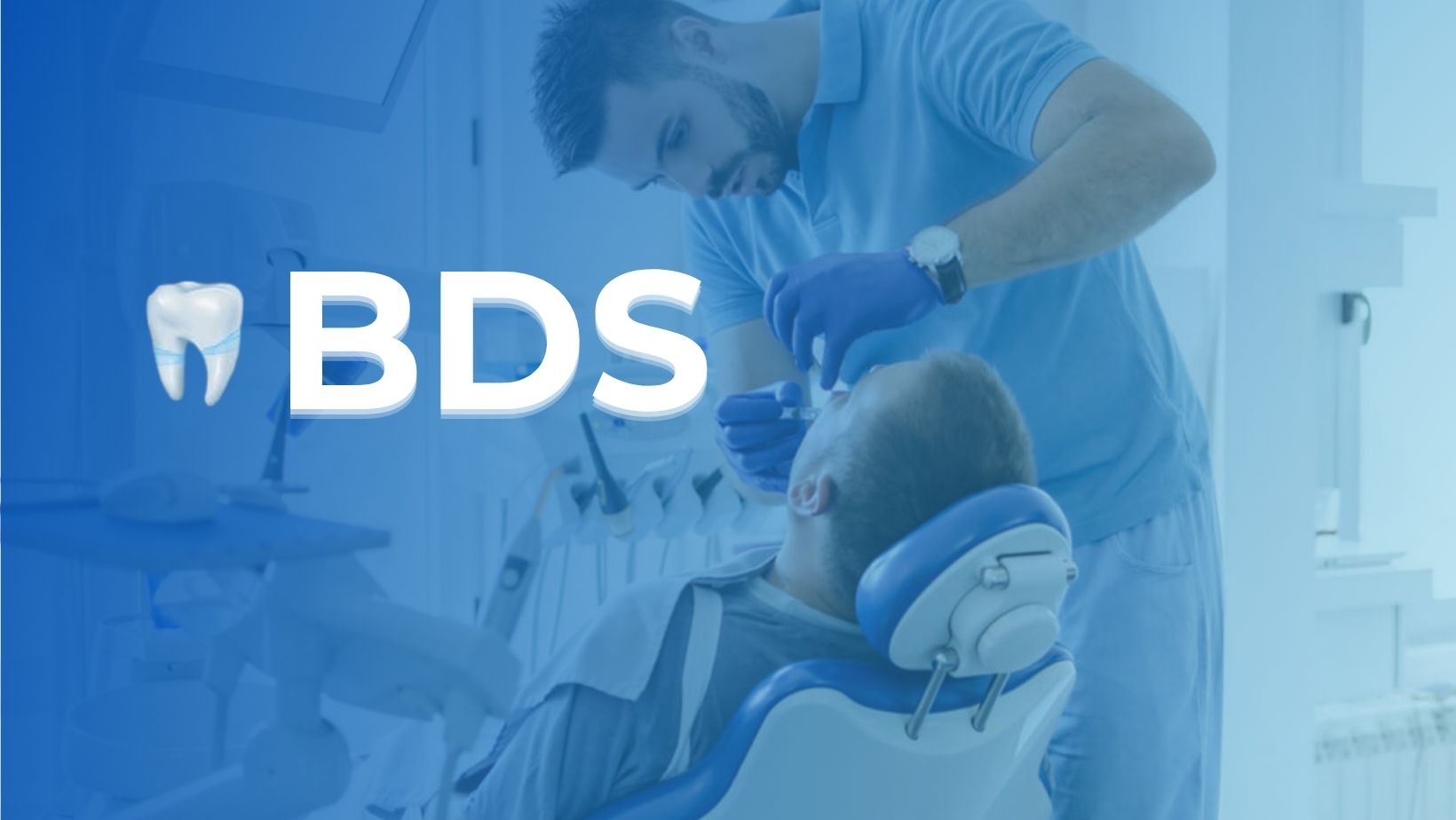
If you're passionate about oral health and aspire to build a career in dentistry, pursuing a Bachelor of Dental Surgery (BDS) is the ideal starting point. As the only recognized undergraduate dental program in India, BDS is mandatory for becoming a licensed dental practitioner. The course offers a strong academic foundation in dental sciences and emphasizes hands-on clinical training, equipping students to diagnose and treat various oral health issues. Covering subjects like oral anatomy, pathology, and dental surgery, along with a one-year internship, BDS prepares students for diverse roles in clinical practice, academics, and research.
BDS (Bachelor of Dental Surgery) is a professional undergraduate degree program focused on oral and dental health. It is the second most popular medical course in India after MBBS and is designed to train students in diagnosing, preventing, and treating dental conditions and diseases. The curriculum combines rigorous academic instruction with hands-on clinical practice, preparing students to deliver quality dental care.
The BDS course in India is structured over five years, which includes:
|
Component |
Duration |
|
Academic Coursework |
4 years |
|
Compulsory Internship |
1 year |
Throughout these five years, students study a range of core subjects such as Oral Anatomy, Dental Materials, Oral Pathology, Periodontics, General Surgery, and Prosthodontics. The final year includes a one-year mandatory internship in a dental hospital or college, offering practical exposure under supervision.
India is witnessing a growing emphasis on dental and oral hygiene, with rising awareness and access to healthcare. This has increased the demand for well-trained dental professionals in both urban and rural areas. BDS graduates can find employment in private practices, corporate dental chains, and public healthcare systems.
A BDS degree opens up several career avenues, such as:
With the growing private healthcare industry and demand for aesthetic dentistry, BDS professionals are now exploring entrepreneurial paths, such as opening their own clinics or joining multi-specialty hospitals.
Dentists play a crucial role in overall health and wellness by addressing dental problems, promoting oral hygiene, and preventing systemic diseases linked to poor dental health. A career in dentistry allows you to make a real impact in people’s lives, especially in underserved areas.
BDS acts as a gateway to postgraduate specializations like MDS (Master of Dental Surgery) in disciplines such as:
These advanced programs allow dentists to deepen their expertise and increase their professional value.
To enroll in a BDS program in India, candidates must meet the following minimum requirements:
|
Requirement |
Details |
|
Qualifying Examination |
10+2 (Science stream with PCB) |
|
Minimum Aggregate |
50% (General), 40% (SC/ST/OBC) |
|
Compulsory Subjects |
Physics, Chemistry, Biology, and English |
Candidates must pass 12th grade from a recognized board with the above subjects and marks.
Applicants must be at least 17 years old by 31st December of the year of admission. There is no upper age limit for NEET-UG as per the latest guidelines from the National Medical Commission (NMC), but students should confirm this with specific institutions if needed.
Admission to BDS programs across India is entirely based on NEET-UG (National Eligibility cum Entrance Test – Undergraduate). It is a centralized, all-India level exam conducted by the National Testing Agency (NTA). Scoring well in NEET-UG is crucial for securing admission in government and private dental colleges.
The BDS admission process is centrally administered based on NEET-UG scores, and involves multiple rounds of counseling. Here's an overview:
|
Step |
Description |
|
Step 1: NEET Registration |
Register for NEET-UG and appear for the entrance examination |
|
Step 2: Counseling Process |
Participate in All India (MCC) or State-level counseling |
|
Step 3: College Allotment |
Colleges allotted based on rank, preference, and category |
|
Step 4: Seat Confirmation |
Confirm seat by submitting documents and paying admission fee |
Students can apply under All India Quota (15%) or State Quota (85%), depending on their domicile and eligibility.
Here is a list of key documents that are generally required during counseling and final admission:
|
Document |
Purpose |
|
Class 10 & 12 Marksheet/Certificate |
Proof of age and educational qualification |
|
NEET-UG Scorecard & Admit Card |
Required for merit-based counseling |
|
Domicile Certificate (if applicable) |
For claiming state quota seats |
|
Caste/Category Certificate (if applicable) |
For reservation benefits as per government norms |
|
Aadhar Card / Valid ID Proof |
Identity verification |
Additional documents like passport-size photos, transfer certificate, and medical fitness certificate may be required depending on the college or state authority.
Pursuing a BDS degree in India is a rewarding choice for those who are passionate about healthcare and wish to specialize in dental science. With increasing focus on oral hygiene and the rapid growth of private and public dental services, the scope for BDS graduates is expanding steadily.
To succeed in this journey:
If you aspire to promote oral health and build a stable, respected, and fulfilling career in medicine, BDS is the right choice for you.